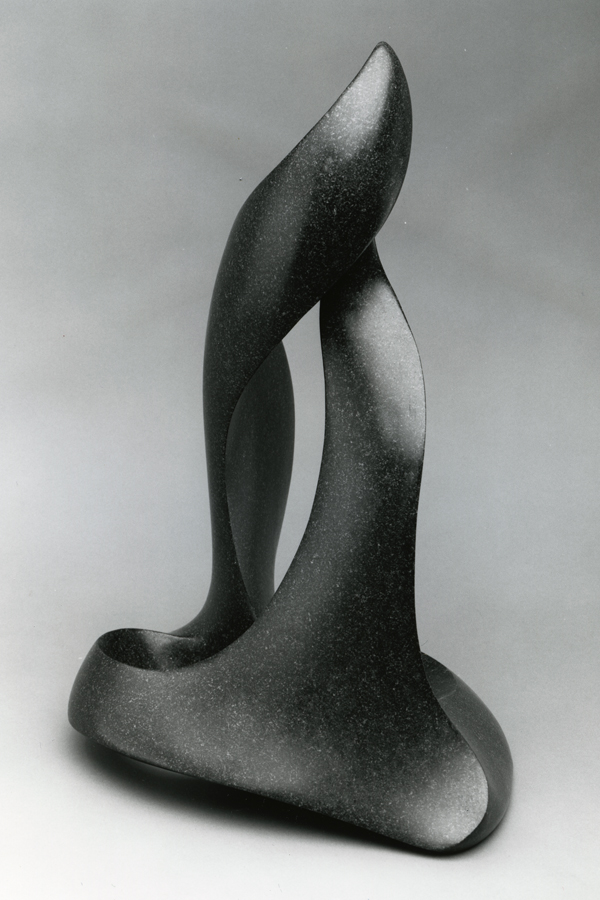In March of 1962, sculptor Victor Riu would have his second
show in twelve years at Lehigh University Art Galleries. At the time he was 74
years old. Works were borrowed from museums including the Pennsylvania Academy of Fine Arts and private collections.

Riu made Coopersburg, Pennsylvania world-famous by
promoting the igneous blue-black granite (Gabrogrannidiorite) that is eponymous with the town.
Coopersburg granite is an extremely hard material generally avoided by
sculptors because of the difficulty of working with it. The stone is often
compared to Egyptian basalt that has endured in sculptured form for 5000 years.
The beautiful granite takes a high polish and resists staining.
Riu’s sculptures include figures of mathematical concepts
such as the Moebius curve, emotions, or animals such as birds and cats. In an article published at the time Riu said his aim was to create a “fluid form pleasing to the eye from every angle.”
Riu went on “Sometimes it is necessary to change the form. If a line is lost or
vague, I must find it. Frequently, the raw stone suggest – but never dictates
to me.”

 |
| Photos of a Riu sculpture provided by a Pennsylvania collector. |
Lehigh Professor Francis Quirk was quoted as saying “Nobody
has ever handled this high-density material better than Riu. His fluid moving
planes of stone seem to exceed the limitations of the material.”
Born in Trieste, Italy, in 1887, Mr. Riu studied at the
Scuola per Capi d'Arte in Trieste from 1899 to 1903. Afterwards he worked in
his grandfather and uncle's Studio of Fine Monuments before coming to the
United States in 1906 at the age of 19. He was an ornamental stone worker on
projects like the New York Public Library, the new Grand Central Station, and
the Chicago Court House. It would be an interesting historical tidbit if he
worked on the famous lions: Prudence and Fortitude. He continued his work in Barre,Vermont where he also ran a farm and experimented with plaster
sculpture.
Still later, he became superintendent of the Montpelier (VT.) Granite Co. whose memorials and
monuments were sent throughout the U.S.
In 1922 he moved to Coopersburg and bought the Coopersburg Granite Co.
The famous Coopersburg “blue-black” granite was shipped to users throughout the
world.
Sculptors also came to Coopersburg to see the stone and Riu worked with many of note including Wharton Esherick, Jose de Rivera and Ahron Ben Shmuel. Schmuel’s Fairmont Park sculpture of the Boxers is made of Coopersburg granite. Rui collaborated with these luminaries on monuments to Connie Mack, Sherwood Anderson, World War II heroes and other notables. Jose deRivera also exhibited at Lehigh and is on our agenda for a dedicated blog post.
Rhythm by Victor Riu Photo courtesy of Woodmere Art Museum
Riu’s sculptures are in several museum collections including the Pennsylvania Academy of Fine Arts, Woodmere Art Museum and numerous private collections. In addition to exhibits at Lehigh University Art Galleries and the Woodmere Art Museum he showed at galleries in New York, Boston, San Francisco and Philadelphia.
 Victor Riu Resurgent Harmony 1957 Photo courtesty of the Philadelphia Academy of Fine Art
Victor Riu Resurgent Harmony 1957 Photo courtesty of the Philadelphia Academy of Fine Art
No comments:
Post a Comment